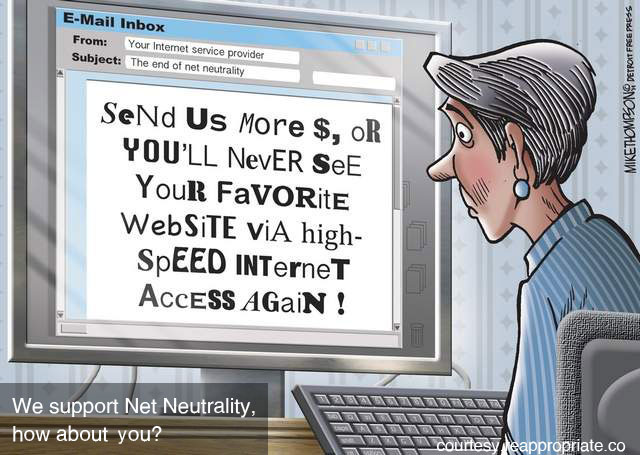Net Neutrality, Welcome to India

Table of Contents
After shocking the US, Net Neutrality principle has come to India. In recent times, the debate about it heats up here, as we have no specific rules regarding the protection of net neutrality.
Before knowing about implications of not having such laws in India, let’s know more about Net Neutrality principle.
What is net neutrality?
Net neutrality (or net equality) is a principle that restricts ISPs (Internet Service Providers) and governments to discriminate or charge differentially on the basis of content, site, users, platform, application, or mode of communication. In brief, net neutrality is about treating all the Internet data in equal manner.
The idea of Open Internet
Open Internet is a real idea, and net neutrality is an important component of it. An open Internet is an idea that enables all individuals and companies to access full resources of the Internet.
Along with net neutrality, such idea comprises transparency, open standards, lack of Internet censorship, etc. In brief, it is fair to say that Open Internet is an umbrella term that includes everything related to net freedom.
Events in brief and its impact on net neutrality
It all started in December 2014, when Indian telecom giant Airtel had tried to introduce a plan for charging a differential tariff for VoIP services like Viber and Whatsapp. At that time, huge public outrage forced a rollback of that decision.
It is Airtel again that has violated the net neutrality principle by introducing ‘Airtel Zero’ plan. Under this plan, netizens need not pay anything to access the member companies’ apps on Airtel network as the charge is already paid by the members of ‘Airtel Zero’. Many people and companies consider this plan as a discriminatory move by Airtel. According to critics, such plan will create two different classes of apps; one has paid money to Airtel and second has not paid anything to Airtel. While, Airtel defends the move by saying the plan is quite similar to toll-free services. Of course, here, we should not forget to mention Facebook-Reliance joint venture ‘internet.org’ in India.
All such moves have generated debate on net neutrality in India. As there are no formal laws regarding net neutrality here, ISPs take the advantage (or disadvantage?) by bringing such plans.
Recently, domestic telecom regulatory authority-TRAI has released a consultation paper on Over-The-Top (OTT) services and net neutrality with asking for public feedback. And till date, netizens have sent more than 1.5 lakh emails to TRAI supporting net neutrality in India. The last date for giving feedback is 24th of April, 2015, and needless to say, India gears up for setting a new milestone once again in terms of number of emails.
You can record your vote here: http://www.savetheinternet.in/
Department of Telecom (DoT) has announced that it will come forward with its report on net neutrality in the second week of May.
Conclusion
Regulation of any information except illegal one on the Internet is undesirable, as it prevents the netizens by sharing and knowing peoples’ view on a particular subject. We can compare restriction on the Internet with the removal of both ‘freedom of speech’ and ‘freedom of expression’.
Net neutrality is necessary for the small companies as it gives them an opportunity to grow online without any bias or discrimination.[/vc_column_text][/vc_column][/vc_row]



